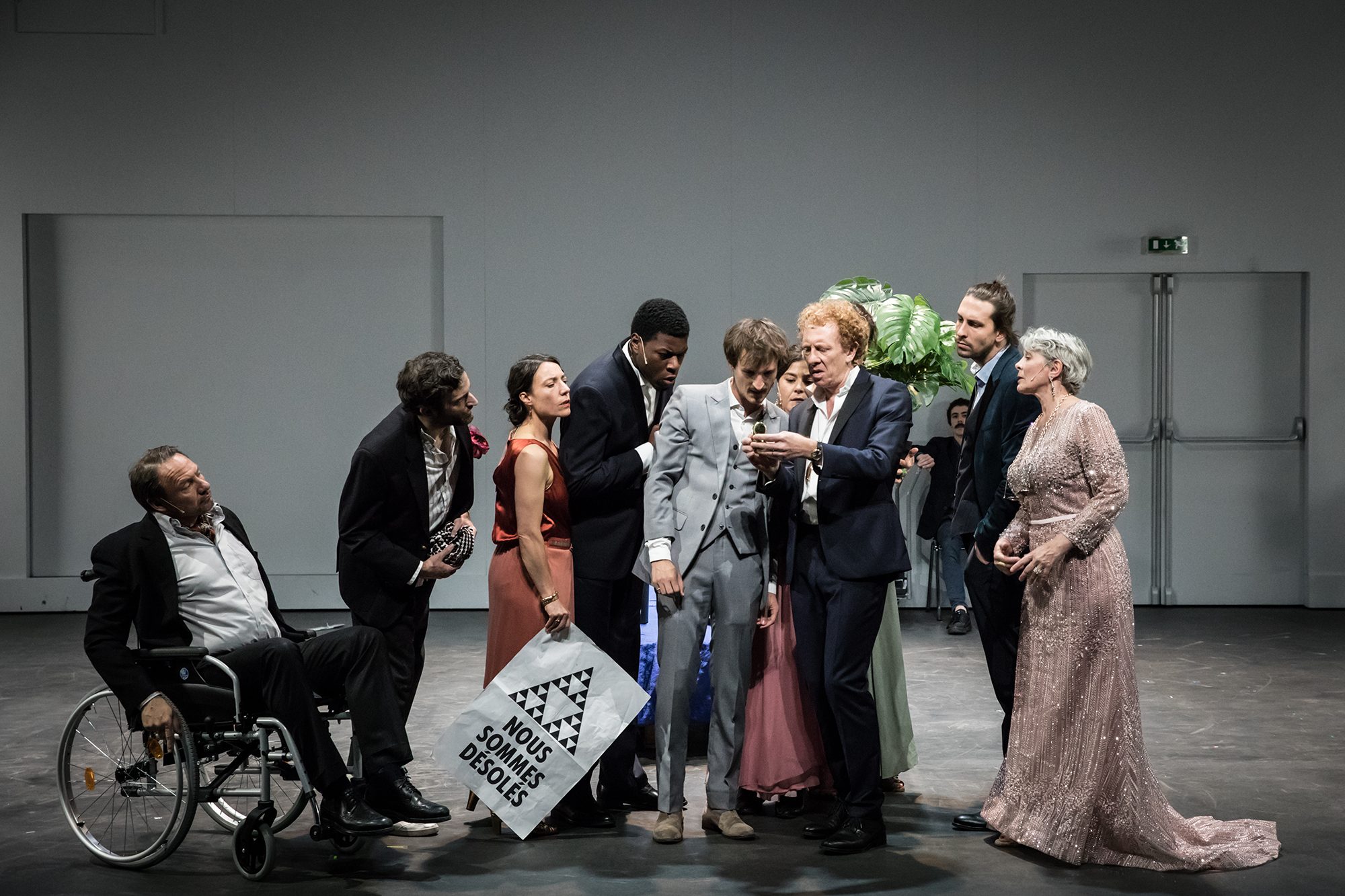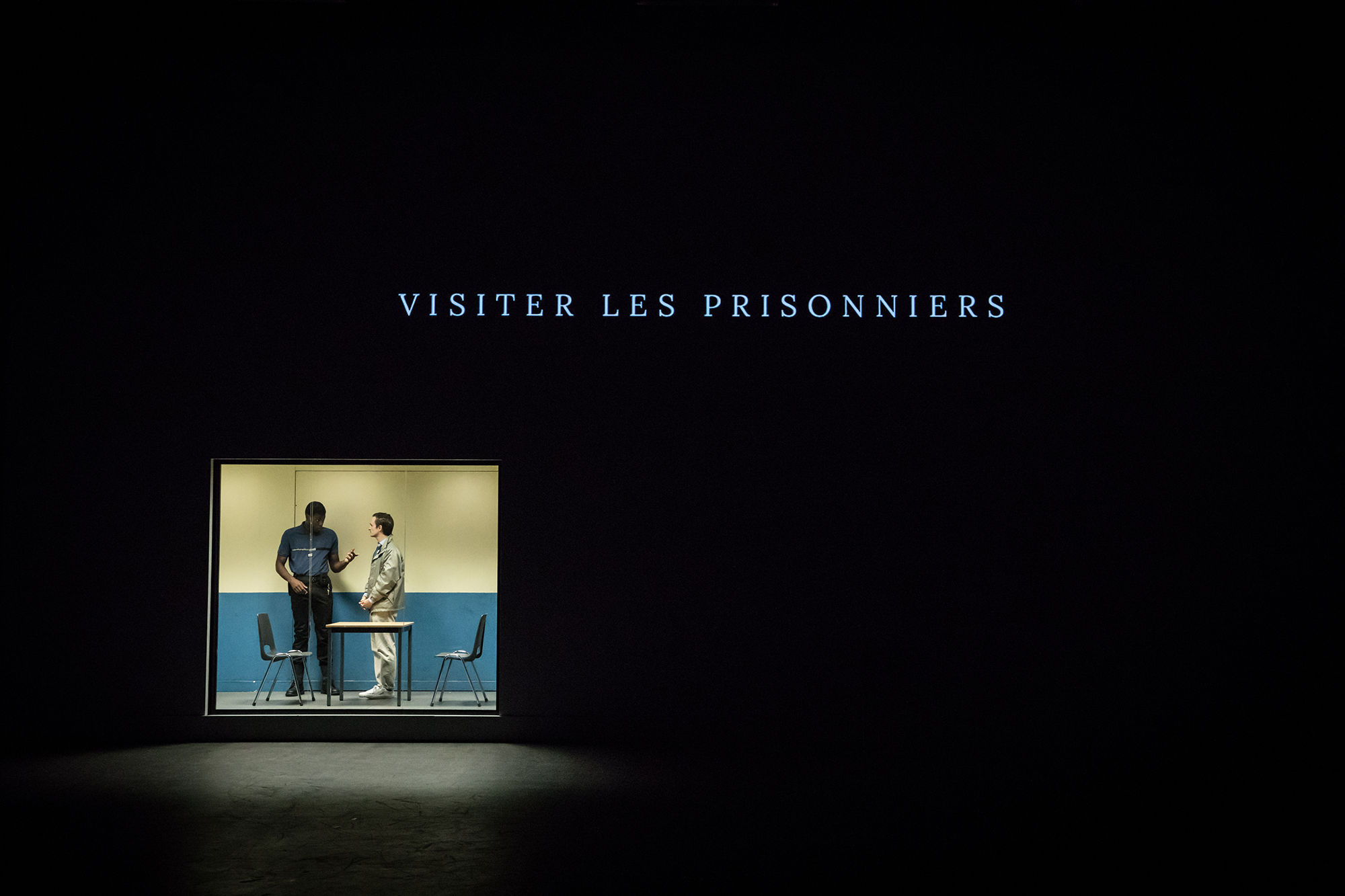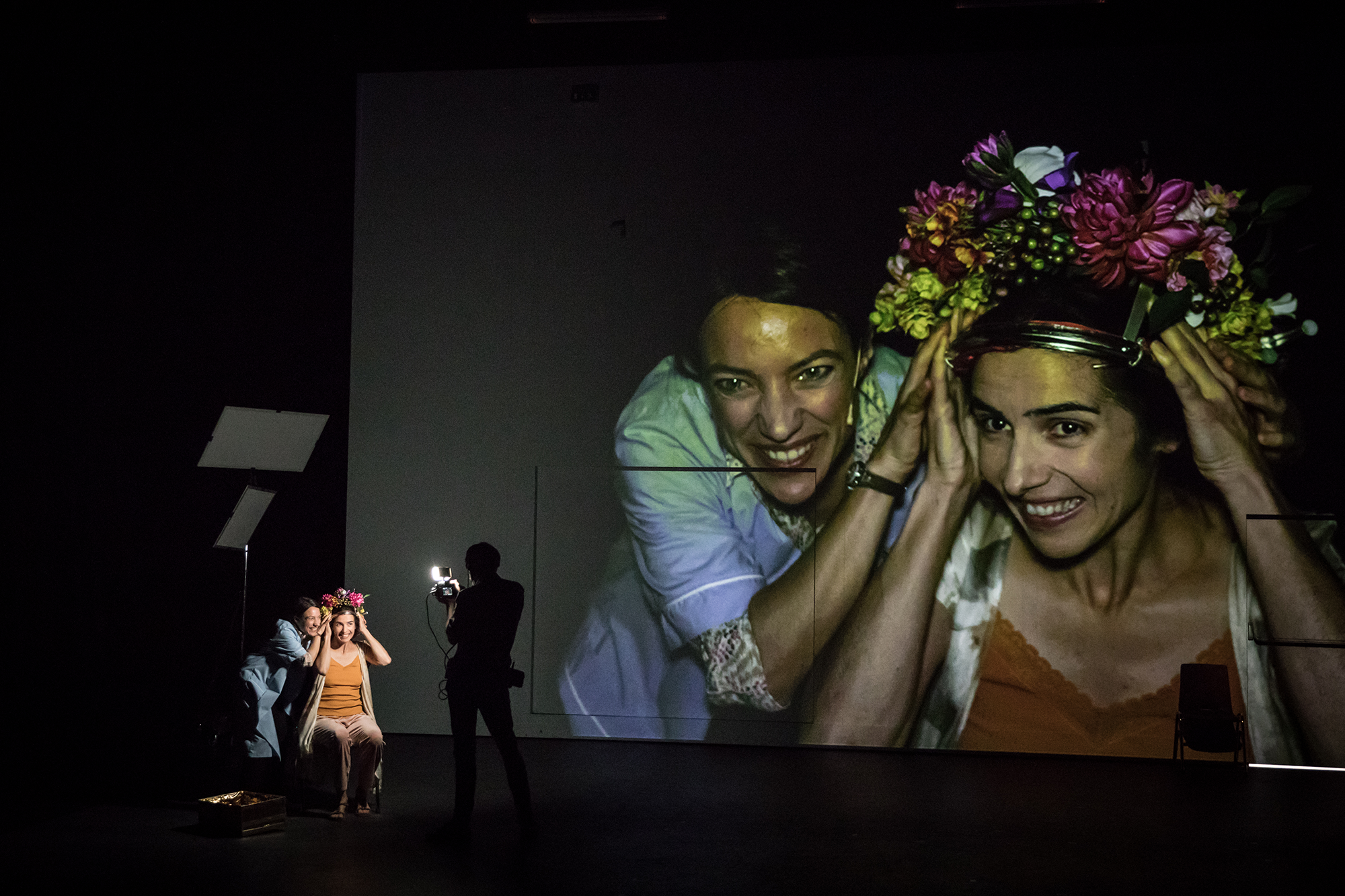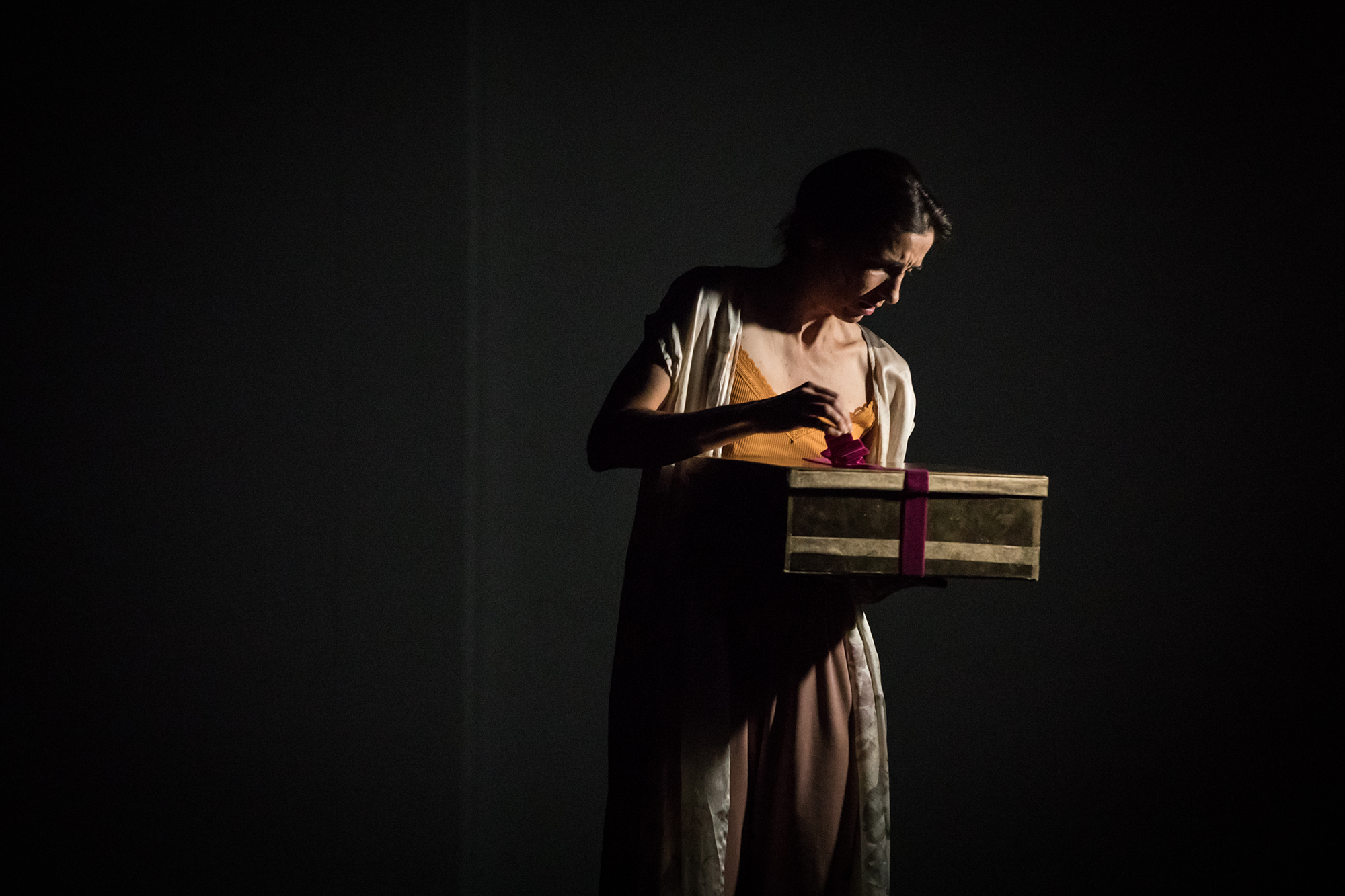with
Sharif Andoura
Salvatore Cataldo
Éric Challier
Teddy Chawa
François Godart
Camille Lucas
Édith Merieau
Judith Morisseau
Catherine Morlot
Adrien Rouyard
et les musiciens
Guy-Loup Boisneau
Émile Carlioz
Clotilde Lacroix
(alternating with)
Amélie Potier
Romain Louveau
How are we to find our bearings in ethical matters? In the words of of playwright and director Tiphaine Raffier, the theatre is the « place that can both divide and reconcile people », as it is able to infuse moral reflection into the concrete urgencies of everyday life. In her new creation, following the example of Kieslowski's Decalogue, she has imagined situations that put to the test some of the norms that are supposed to provide guidelines for our actions. As a starting point, she based her writing on a selection of the Christian « works of mercy », some of which date back to the Gospels. These « works » are treated in her production as challenges meant to confront us with « the archaic or contemporary moral dilemmas and anxieties that haunt us ».
Cast
dramaturgy / direction assistant Lucas Samain
music Othman Louati
choregraphy Salvatore Cataldo, Pep Garrigues
scenography Hélène Jourdan
video Pierre Martin
light Kelig Le Bars
sound Hugo Hamman
costumes Caroline Tavernier
production La femme coupée en deux, La Criée – Théâtre national de Marseille
production musicale Miroirs étendus
coproduction ExtraPôle Provence-Alpes-Côte d’Azur, Odéon-Théâtre de l’Europe, Festival d’Avignon, Théâtre du Nord – centre dramatique national Lille Tourcoing Hauts-de-France, Théâtre de Lorient – centre dramatique national, Théâtre Gérard Philipe – centre dramatique national de Saint-Denis, Théâtre national populaire de Villeurbanne, Théâtre Olympia – centre dramatique national de Tours, Châteauvallon – scène nationale, La Rose des Vents – scène nationale Lille Métropole Villeneuve d’Ascq, Le Quartz – scène nationale de Brest, Le Phénix scène nationale Valenciennes – pôle européen de création, Scène nationale 61, Le Préau – centre dramatique national de Normandie-Vire
en coréalisation avec le Théâtre Nanterre-Amandiers
avec le soutien de la Direction régionale des affaires culturelles Hauts-de-France, la région Hauts-de-France, la ville de Lille, la Direction générale de la création artistique, le Grand Sud/Lille
avec la participation artistique du Jeune théâtre national et le dispositif d’insertion de l’école du Nord – soutenu par la région Hauts-de-France et le ministère de la Culture
la compagnie La femme coupée en deux bénéficie du soutien du ministère de la Culture / Drac Hauts-de-France, au titre de l’aide aux compagnies conventionnées
Biography of Tiphaine Raffier
Actress, author, director and producer, Tiphaine Raffier trained at the École du Nord in Lille. She has worked under the direction of Stuart Seide, Frank Castorf and Jacques Vincey. She co-founded the collective "Si vous pouviez lécher mon cœur", and participated in the creation of Les Particules élémentaires and 2666, directed by Julien Gosselin. At the same time, she created her company, "La femme coupée en deux", and directed her own texts: La Chanson (2012), Dans le nom (2014), France-fantôme (2017), La réponse des Hommes (2019) and La Chanson [reboot] (2021). Dans le nom and France-fantôme were scheduled at the Odéon-Théâtre de l'Europe in 2020, but cancelled due to the pandemic; La réponse des Hommes was presented jointly with the Théâtre Nanterre-Amandiers in January 2022. In 2023, still at the Odéon, she adapted Némésis, a novel by Philip Roth. For the cinema, she directed La Chanson, a short film selected for the Directors' Fortnight in Cannes (2018).
Her theatrical work is published by La Fontaine and L'avant-scène théâtre.
Practical Information
duration 3h20 with intermission
Tuesday to Friday at 7.30pm, Saturday at 6pm and Sunday at 3pm
Break on Sunday 9 June
Tuesday to Friday at 7.30pm, Saturday at 6pm and Sunday at 3pm
Break on Sunday 9 June





